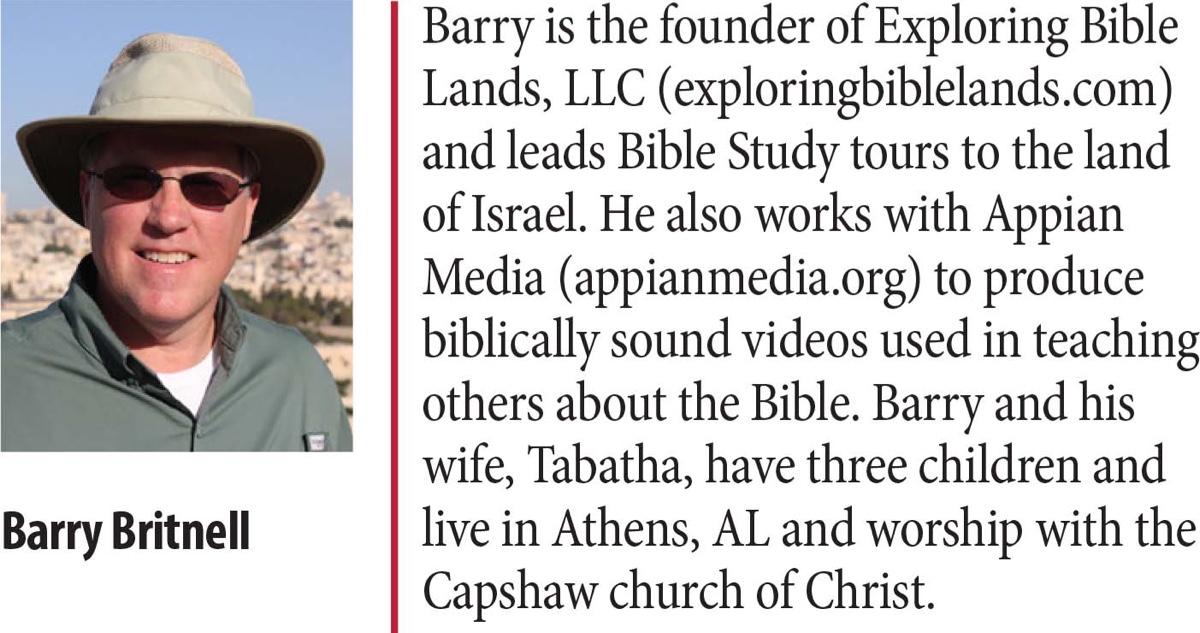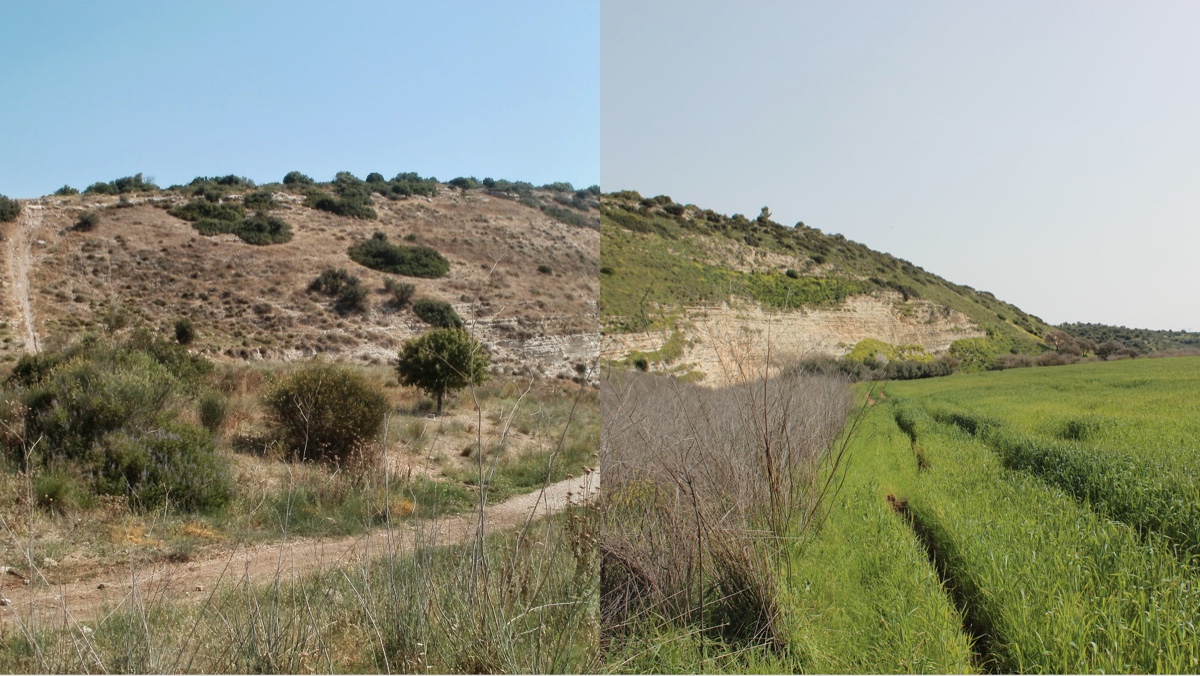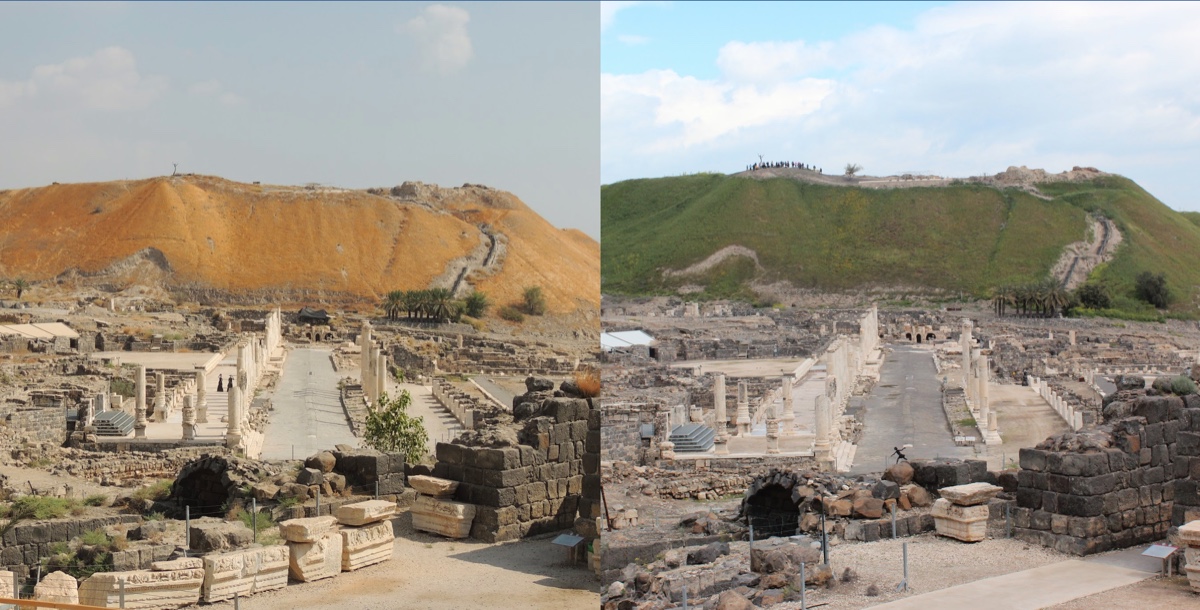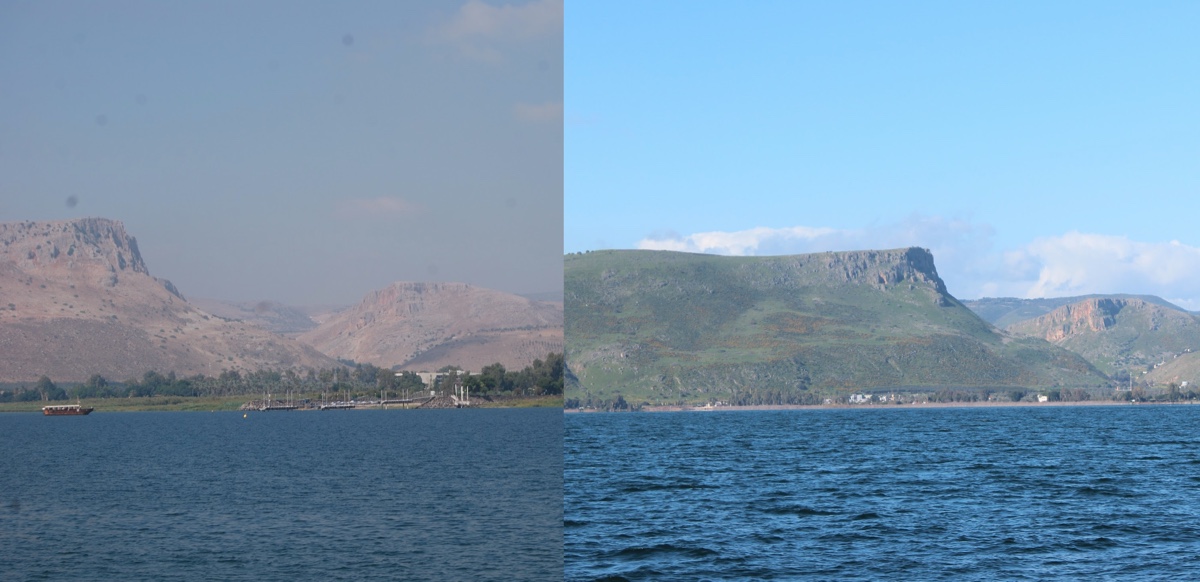By Barry Britnell
Synopsis: Traveling to Israel during the month of March can be a valuable reminder of the power of the promises of God.
I am often asked, “Why do you travel to Israel so much? Is there anything else to learn?” Undoubtedly, those questions come from someone who has never been there. The most striking thing to me, as I travel across that beautiful country, is how little I know. When I am there, an hour does not pass in which I do not learn something valuable.
Back in March, I led my latest tour group over there. This was the earliest in the year that I have taken a group. Mostly, I enjoy traveling to the mid-east during in the summer months. Yes, it is warmer than other parts of the year. Yet, with the ample amounts of daylight and the fact that there is no chance of rain, it makes that time of year very desirable for traveling. With that said, the opportunity to lead a group in March was something that I could not turn down. We were not disappointed. We experienced many unusual events, including seeing falling snow while we were visiting the Mount of Olives!
By traveling this time of year, I was reminded of something involving the promises of God. In Deuteronomy 11, God speaks to the people (through Moses). He tells them that God will bless the land to which they are about to enter via “the early rains and late/latter rains.”
It shall come about, if you listen obediently to my commandments which I am commanding you today, to love the Lord your God and to serve Him with all your heart and all your soul, that He will give the rain for your land in its season, the early and late rain, that you may gather in your grain and your new wine and your oil. He will give grass in your fields for your cattle, and you will eat and be satisfied (Deut. 11:13-15).
This promise of God, made about 3,500 years ago, remains still true today. The early rains start in October. From October through March (when the latter rains fall), the land of Israel gets almost continual rain. Between the latter rains (in March) and the early rains (in October), the land receives no rainfall.
By traveling to Israel in the summer, I visit many places that have not received rain in at least three months. Therefore, most of the grass and shrubbery have turned brown. However, by traveling in March (at the end of the rainy season), I was able to see the land in full, lush color.
At the Old Testament city of Beit-shan, the tel of the ancient city is usually brown, which only enhances the heat which beats down on to the first-century Decapolis city of Scythopolis. However, after the rains of March, the mound is a beautiful green, which encourages travelers to hike to the top for an unforgettable view.
While traveling across the Sea of Galilee, the awe-inspiring edifice of Mount Arbel towers over the western side of the lake. During July, this rocky crag is the home to small burrowing animals which seek relief from the never-ending sunlight. However, in March, the grass-covered hillsides beckon many animals to feed on what it offers.
Walking through in the valley of Elah, where David fought Goliath, the sounds of crackling underbrush heard in July is replaced by the lush, deep-green agriculture which will be soon ready for harvest.
Experiencing these locations at an earlier time of year reminded me of the wonderful promise that God made to the children of Israel centuries ago. This promise to care for the land through the early and latter rains still holds true today.
The Bible is full of promises. In the beginning, God created man, and they were in complete fellowship with each other. However, man soon sinned, and that relationship was tarnished. The rest of the Bible details God’s plan to reestablish that relationship with man. This plan involves dozens of divine promises.
In Genesis 6, God promised to bring a flood upon the earth. That promise came true.
In Genesis 9, God promised to never destroy the earth by water again. That promise came true.
In Genesis 12, God promised to bless all the families of the earth through the seed of Abraham. That promise came true.
In Jeremiah 25, God promised that the people would be carried into captivity because of their sin. That promise came true.
In Jeremiah 30, God promised that some survivors would return to the land. That promise came true.
In Matthew 1, God promised Joseph that Mary would bear a Son who would save His people from their sins. That promise came true.
In Matthew 9, Jesus promised that He would be delivered into the hands of men, killed, and He would rise on the third day. That promise came true.
2 Peter 3:8-9 reminds us that God is not slack concerning the promises that He makes. History confirms what Peter is saying. It does not matter if the promise involves the punishment of the Israelites because of wickedness, the role of Jesus in the salvation of man, or of the rain that falls on the land. God’s promises always come true. Walking around the land of Israel during March is a vivid reminder of this unchanging reality.


Image-1 Caption: The Valley of Elah, by Barry Britnell

Image-2 Caption: Beit Shan, by Barry Britnell

Image-3 Caption: Mount Arbel, by Barry Britnell

